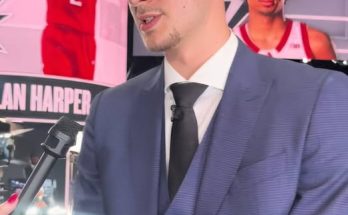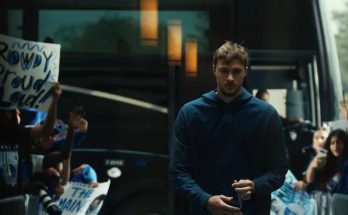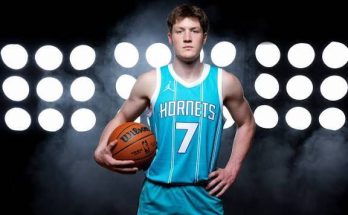A federal judge has denied Tennessee guard Zakai Zeigler’s bid for a preliminary injunction that would have allowed him to play a fifth season of Division I basketball while his antitrust lawsuit against the NCAA is underway. The ruling, issued on June 12, 2025, by U.S. District Judge Katherine A. Crytzer, delivers a setback to Zeigler and marks a key moment in the evolving legal fight over eligibility rules, athlete compensation and the reach of the NCAA’s strict regulations.
Judge Crytzer’s decision came nearly a week after a hearing on June 6 in Knoxville, Tennessee. In her order, she stated that Zeigler had not demonstrated a likelihood of success in showing that the NCAA’s “Four‑Seasons Rule”—which limits athletes to four seasons of competition in a five‑year window—violates the Sherman Antitrust Act or Tennessee state antitrust laws. She underscored that she is “a court of law, not policy,” and that whether the NCAA should expand eligibility allowances for the benefit of student‑athletes fell outside her judicial remit .
Zeigler, a three‑time All‑SEC selection and two‑time SEC Defensive Player of the Year, filed the lawsuit on May 20, challenging the NCAA’s restriction as an unlawful restraint of trade. His legal team contended that the rule directly harms his ability to monetize his name, image, and likeness (NIL) rights in the 2025–26 season—projecting potential earnings between $2 million and $4 million, compared to the roughly $500,000 he earned this past year .
The petition for a preliminary injunction sought to allow Zeigler to suit up for Tennessee’s upcoming season while the litigation proceeds. Granting such relief would have been historic, making him the first four‑year player in modern Division I basketball to receive a fifth season as a matter of right. But Judge Crytzer highlighted that granting the injunction could disrupt current roster compositions, potentially disadvantaging committed players and incoming high school recruits .
From the bench, Judge Crytzer emphasized the difference between legal interpretation and policy-making. “This Court is a court of law, not policy,” she wrote, rejecting the argument that courts should override the NCAA’s eligibility structures to benefit athletes. Nor did she find sufficient evidence to conclude that the Four‑Seasons Rule imposed significant anticompetitive effects on NIL markets . The NCAA, in its defense, argued Zeigler is effectively requesting that courts grant him unprecedented eligibility relief “as a matter of right,” likening it to stepping outside established regulations without statutory authority .
Despite the setback, Zeigler’s attorneys made clear they see the ruling not as an end, but as a prelude. The legal team, comprising Litson PLLC and Garza Law Firm, issued a statement expressing disappointment and reiterating confidence that future proceedings will favor their client. They cited a separate, contemporaneous settlement in the case House v. NCAA—where recent developments demonstrated NCAA’s control over NIL—that could undercut the NCAA’s long-held stance .
Zeigler himself has also filed a notice of appeal, signaling that the lawsuit will continue even as he transitions to graduate study following his graduation in May . In that anticipated next phase, he will likely attempt to prove that the eligibility rule not only restricts competition in team services but also limits the market for his NIL value, a claim Judge Crytzer has yet to find persuasive.
Zeigler’s case takes shape against a backdrop of shifting norms in college athletics. Since the NCAA’s abolition of longstanding amateurism rules through the 2021 Supreme Court decision in NCAA v. Alston and the subsequent advent of NIL rights, athletes have navigated a profoundly altered landscape—one in which their economic opportunities remain in tension with regulatory structures. Eligibility rules such as the Four‑Seasons Rule have become focal points in arguments about fairness and market access for athletes extending their college careers.
Legal precedents involving junior college transfers have begun loosening such restrictions. Tennessee quarterback Diego Pavia challenged the NCAA after completing junior college and won an additional year of eligibility, prompting court-enforced changes. Unlike Zeigler, Pavia’s path circumvented NCAA eligibility rules due to his JUCO background, complicating Zeigler’s strategy .
In the meantime, stakeholders across college sports—from school athletic directors to the NCAA itself—have contended with practical challenges: raising scholarship funds, preparing team rosters, and managing NIL negotiations. Allowing one elite player extended eligibility could open the floodgates, potentially forcing institutions to fund additional scholarships or shift roster strategies—all amid rising tension between legal rulings and economic realities for athletic departments.
Judge Crytzer used these practical considerations to strengthen her ruling. She noted that any harm Zeigler might suffer—primarily reduced NIL income—is compensable through future monetary damages if he ultimately prevails. On the flip side, she stressed that premature relief via injunction could destabilize existing rosters and impact legitimate NIL plans for current and future athletes .
Zakai Zeigler concluded his college career at Tennessee as one of the program’s most decorated guards. Across four seasons and 138 games (83 starts), he compiled 11.3 points, 5.4 assists, and 2.6 rebounds per game. His career totals include school records for assists (747) and steals (251). Moreover, he led the Volunteers to two Final Four appearances and twice earned SEC Defensive Player of the Year honors .
Those on-court achievements didn’t yet translate into a first-round NBA Draft projection, though analysts view Zeigler as a plausible second-round pick or two-way contract candidate. A fifth college season could have enhanced his development and boosted his NBA stock—beyond that, it would allow him to capitalize on growing NIL earnings.
Zeigler’s attorneys put a number on those potential earnings: as much as $4 million over the 2025–26 season alone, a sum which dwarfed his estimated $500,000 in the prior year. That sharp disparity underscores the core of the lawsuit: that the Four‑Seasons Rule not only limits athletic participation but freezes economic opportunities tied to an athlete’s peak visibility and collegiate branding. By its nature, the rule would force Zeigler—and others like him—to choose between continuing their careers or maximizing their NIL potential at its height .
Zeigler’s legal team has already filed formal notice of appeal, preserving the timeline to bring the case before the federal appeals court in the Sixth Circuit . That next chapter will likely hinge on whether the appeals court finds merit in his argument that NCAA eligibility rules suppress competition in both player service and NIL markets in a way actionable under antitrust statutes.
Meanwhile, athletic programs and the NCAA will closely monitor the case, aware that a reversal could catalyze sweeping policy shifts—both in terms of roster planning and in how athlete compensation rules intersect with eligibility windows. The NCAA, which has long defended the Four‑Seasons Rule as essential to preserving competitive balance and academic priorities, may be forced to offer new guidance or concessions if courts deem the rule unlawfully restrictive.
Furthermore, the ongoing settlement in House v. NCAA may further complicate the NCAA’s defense. If the NCAA is shown to exert control over athlete compensation in new or unanticipated ways, it could lend credence to Zeigler’s antitrust claims and shape regulatory reforms.
The legal battle over Zeigler’s eligibility resonates far beyond Knoxville. It sits at the intersection of evolving collegiate sports dynamics, including the tension between tradition and reform, the value of athlete labor, and the increasing commercialization of college athletics. The outcome could have ripple effects on who stays, goes, or negotiates for additional seasons; on how universities balance athletic and academic priorities; and on the relevance of existing rules in an era of unprecedented market-driven compensation.
Supporters of expansion argue that athlete welfare, as well as economic equity, demand a reexamination of eligibility constraints—particularly as new NIL rights upend what constitutes fair treatment. Critics caution that unlimited or loosely interpreted extensions could degrade team stability, overburden budgets, and compromise developmental pathways for younger players.
For now, Zeigler remains in limbo: sidelined without the court-authorized prelim entry, training on the graduate school sidelines as the lawsuit moves forward. Though caught between postseason ambitions and legal strategy, he continues to press the case publicly, reaffirming personal belief in its larger significance: “This ruling is just the first chapter of what we believe will ultimately be a successful challenge,” his legal team said .
As the national dialogue over NCAA reform intensifies, fueled by legislative proposals and high-profile litigation, Zeigler’s case offers both symbolic weight and practical precedent. Will eligibility rules adapt to the modern era of athlete compensation, or will courts continue to uphold longstanding structures? The answer could redefine the future for elite college athletes, school programs and the NCAA itself.



